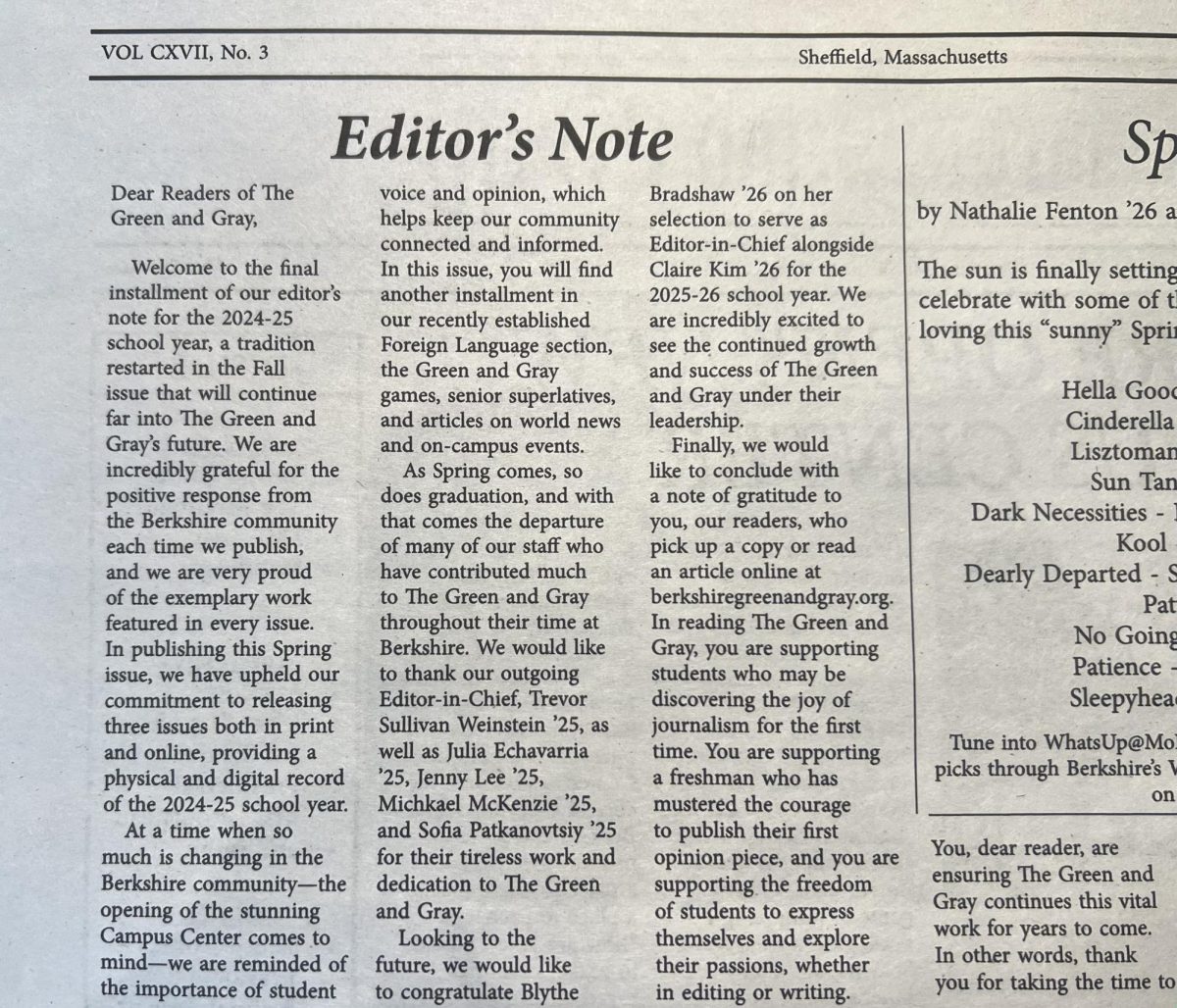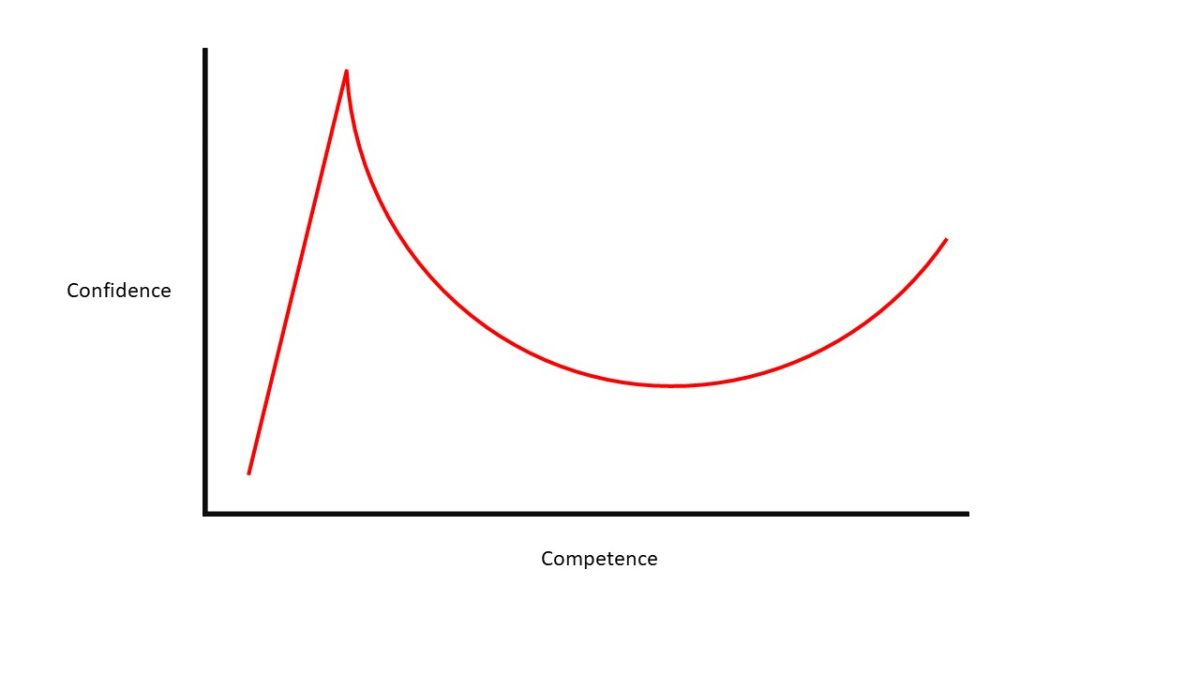Dear Berkshire Bears,
I hate to admit this, but as 21st-century teenagers, we have grown concerningly attached to our devices. It has become so easy to be completely engrossed in our screens.
Before writing this letter, I challenged my friends to play a game of “no-phones” during our hangout to see who would fail first. Confident that we would last at least forty minutes before someone “had” to check a Snapchat notification, I was shocked that we all only made it for a short eighteen minutes.
Social media platforms like Snapchat and Instagram consume teenage lives. Indeed, a staggering forty percent of teens face device addiction. Social media platforms contribute heavily to smartphone addiction. Although phones contain fun, convenient means of communication, their constant presence impacts in-person connections in detrimental ways. Not many teenagers understand the importance of acknowledging the dangers smartphones bring to daily encounters.
As universally known, the modern-day teenage stereotype is defined by an eagerness to be updated through the media every minute. They fear missing out on hilarious texts from friends or news about a celebrity’s relationship status is almost overwhelming. Sadly to say, this unrelenting desire to stay digitally informed hinders real-life interactions. Unfortunately, the adverse effects of smartphone use in social settings do not reveal themselves immediately. However, numerous studies prove that most of us experience significantly decreased trust, empathy, and satisfaction levels in face-to-face connections overtime, as a result of technology addiction.
A Princeton study reveals why it is challenging for teens and adults to get off their phones. We are prone to falsely assuming that another individual’s phone use is more unhealthy than our own phone usage. In many ways, young adults are highly sensitive to the negative impacts of technology addiction in others, but are unable to see it in themselves. So, what does this mean? Teenagers must become conscious of their habits, as they cause inevitable consequences that thwart valuable interactions.
I do not believe that young people should delete every social app on their smartphones to curb their addiction. Instead, I think teenagers should focus on practical steps to ensure in-person conversations remain lively and joyful. When hanging out with friends who are often glued to social media or gaming, kindly give them a nudge and encourage them to place their phones down. By giving friendly reminders to others, we help them discard harmful habits.
Equipped with an understanding of the sneaky, detrimental effects of checking TikTok when a friend is speaking, teenagers will pay closer attention to their own phone behavior around others. If you notice yourself fixed on the screen, remember: all it takes to change is to be aware, make reminders, and stay consistent.
Treasure moments off the screens with those around you and enjoy spring under the Mountain!
All the best,
Claire Kim
Works Cited
Barrick, Elyssa M., Alixandra Barasch, and Diana I. Tamir. 2022. “The Unexpected Social Consequences of Diverting Attention to Our Phones.” Journal of Experimental Social Psychology 101 (104344): 104344. https://doi.org/10.1016/j.jesp.2022.104344.
Brody, Jane E. “Hooked on Our Smartphones.” The New York Times, 9 Jan. 2017, www.nytimes.com/2017/01/09/well/live/hooked-on-our-smartphones.html.
Edelmann, Brittany. “Social Media May Be Changing the Way You Communicate.” Discover Magazine, 27 Oct. 2022, www.discovermagazine.com/technology/social-media-may-be-changing-the-way-you-communicate.
“Gen Z and Millennials Now More Likely to Communicate with Each Other Digitally than in Person – Oct 17, 2017.” The World’s #1 AI-Powered Messaging Platform for Brands – LivePerson, 2017, pr.liveperson.com/index.php?s=43&item=504.
Jeong, Se-Hoon, et al. “What Type of Content Are Smartphone Users Addicted To?: SNS vs. Games.” Computers in Human Behavior, vol. 54, Jan. 2016, pp. 10–17, www.sciencedirect.com/science/article/pii/S0747563215300467, https://doi.org/10.1016/j.chb.2015.07.035.
Knausenberger, Judith, et al. “Feeling Ostracized by Others’ Smartphone Use: The Effect of Phubbing on Fundamental Needs, Mood, and Trust.” Frontiers in Psychology, vol. 13, 1 July 2022, https://doi.org/10.3389/fpsyg.2022.883901.
Maftei, Alexandra, and Cornelia Măirean. “Put Your Phone Down! Perceived Phubbing, Life Satisfaction, and Psychological Distress: The Mediating Role of Loneliness.” BMC Psychology, vol. 11, no. 1, 12 Oct. 2023, https://doi.org/10.1186/s40359-023-01359-0. Accessed 20 Oct. 2023.
Safdar Bajwa, Ruqia, et al. “Smartphone Addiction and Phubbing Behavior among University Students: A Moderated Mediation Model by Fear of Missing Out, Social Comparison, and Loneliness.” Frontiers in Psychology, vol. 13, 6 Jan. 2023, https://doi.org/10.3389/fpsyg.2022.1072551.
“Social Media Addiction Statistics (2023) – Who Is Most at Risk?” Addiction Help, 15 Aug. 2023, www.addictionhelp.com/social-media-addiction/statistics/#:~:text=Young%20social%20media%20 users%20guide.
Stacey Hanke. “How Social Media Affects Our Ability to Communicate.” Thrive Global, 13 Sept. 2018, community.thriveglobal.com/how-social-media-affects-our-ability-to-communicate/.
Talan, Tarık, et al. “Effects of Smartphone Addiction, Social Media Addiction and Fear of Missing out on University Students’ Phubbing: A Structural Equation Model.” Deviant Behavior, 11 July 2023, pp. 1–14, https://doi.org/10.1080/01639625.2023.2235870.










